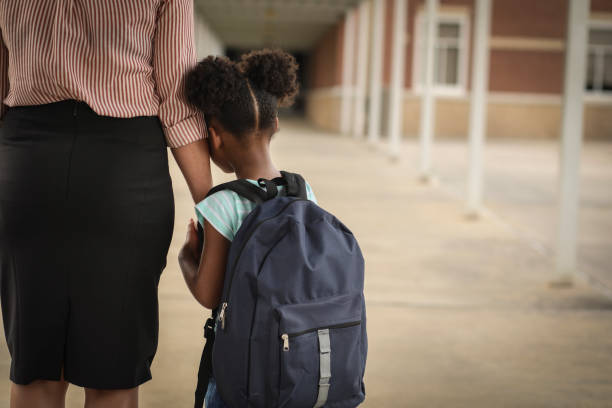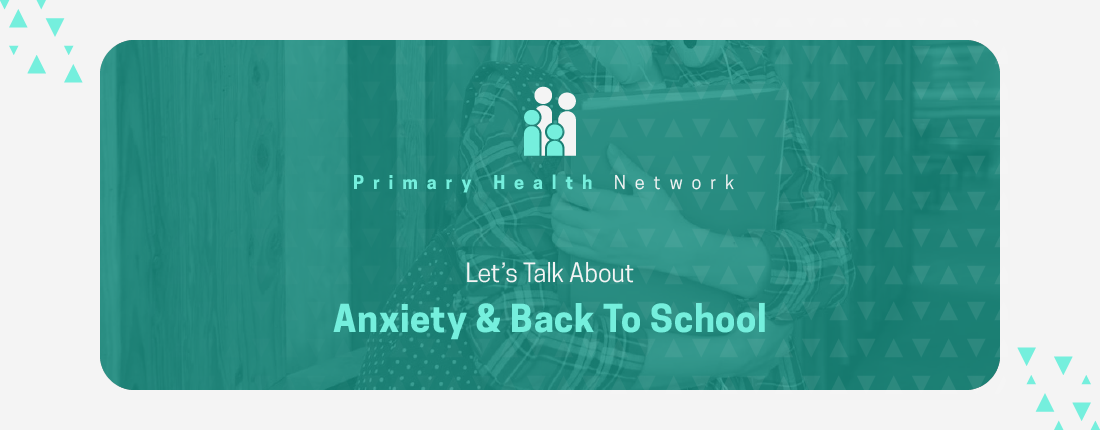As summer draws to a close, the anticipation of a new school year brings a mix of excitement and nervousness. For many students, the thought of heading back to school can be overwhelming, leading to anxiety that can affect their well-being. Whether it’s the uncertainty of a new environment, the pressure to perform academically, or the social dynamics of making new friends, back-to-school anxiety is a common challenge. Here are some strategies to help both students and parents navigate this transition smoothly.
Acknowledge the Anxiety:
The first step in managing anxiety is recognizing and acknowledging it. It’s normal for students to feel anxious about the unknowns of a new school year. Parents can encourage open conversations, allowing their children to express their concerns and fears. Validating these feelings can help students feel understood and supported.
Establish a routine early:

One of the biggest sources of back-to-school anxiety is the sudden shift from the relaxed pace of summer to the structured demands of school. To ease this transition, start establishing a school routine a couple of weeks before the first day. This includes setting regular bedtimes, wake-up times, and meal schedules. A predictable routine can provide a sense of security and reduce anxiety.
Visit the school:
If possible, arrange a visit to the school before the year begins. Familiarizing students with their new environment can alleviate some of the anxiety associated with the unknown. Walking through the hallways, locating classrooms, and meeting teachers can make the first day feel less intimidating.
Focus on the positives:
Help students focus on the positive aspects of returning to school. This could be an opportunity to see friends, participate in favorite activities, or learn new things. Encouraging a positive mindset can help counterbalance the anxious thoughts that often accompany back-to-school time.
Set realistic expectations.
Anxiety can often stem from unrealistic expectations, either self-imposed or perceived by others. Remind students that it’s okay to make mistakes and that they don’t have to be perfect. Encourage them to set achievable goals and take things one step at a time. Parents should also be mindful of not placing undue pressure on their children, focusing instead on effort and growth rather than perfection.
Practice relaxation techniques:
Teaching students relaxation techniques can equip them with tools to manage their anxiety. Deep breathing exercises, mindfulness, and visualization are effective ways to calm the mind and reduce stress. These techniques can be practiced at home and used during school if students begin to feel overwhelmed.
Encourage social connections.
Social anxiety is a common concern for students heading back to school. Encourage your child to reach out to friends before the school year starts, whether through playdates, phone calls, or online chats. Building these connections can ease the fear of social isolation and make the return to school feel more welcoming.
Monitor and limit screen time:
While technology is an integral part of modern education, excessive screen time, especially on social media, can exacerbate anxiety. Encourage students to limit their screen time, particularly in the days leading up to the new school year. Instead, promote activities that engage their minds and bodies, such as reading, outdoor play, or creative hobbies.

Seek professional help if needed:
If anxiety becomes overwhelming and starts to interfere with daily life, it may be time to seek professional help. School counselors, therapists, and pediatricians can provide additional support and strategies tailored to your child’s needs. Early intervention can prevent anxiety from becoming a more significant issue down the road.
Stay positive and be patient:
Transitioning back to school is a process that takes time. Both students and parents should be patient with themselves as they adjust to the new routine. Maintaining a positive attitude, even in the face of challenges, can set the tone for a successful and less stressful school year.
Back-to-school anxiety is a natural response to change, but with the right support and strategies, it can be managed effectively. By preparing in advance, fostering open communication, and focusing on the positives, students and parents can approach the new school year with confidence and ease. Remember, it’s not about eliminating anxiety entirely but learning how to navigate it in a healthy and constructive way.
